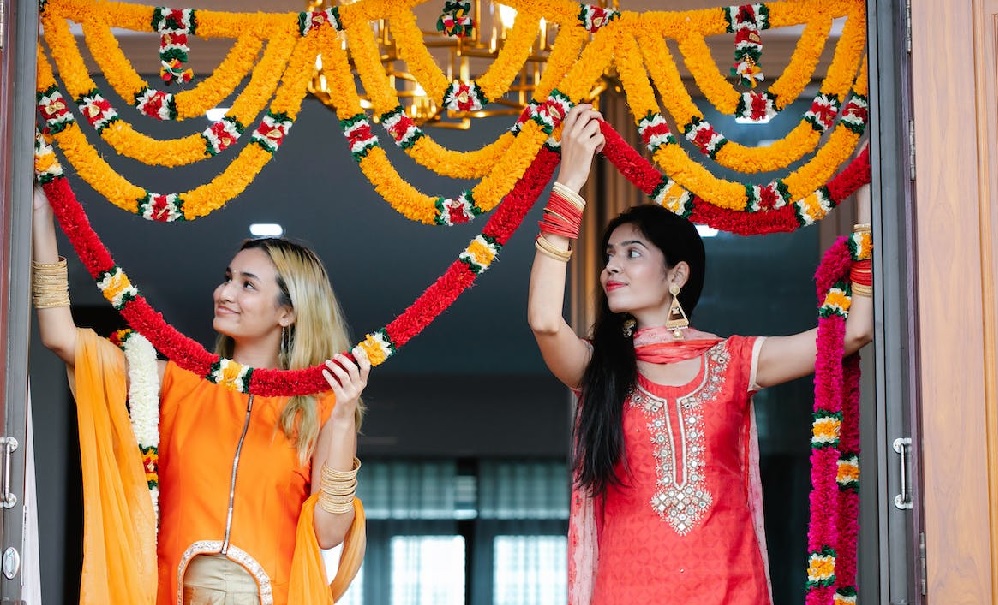Indian Festivals: Celebrations of Diversity, Unity, and Culture
Introduction: India, known for its rich cultural tapestry, is a land of festivals that paint the calendar with vibrant hues of celebration and joy. The country’s diverse population celebrates a multitude of festivals that reflect its history, spirituality, traditions, and the unity of its people. These festivals are not just occasions of merriment; they are the threads that bind the nation together, transcending boundaries and bringing people from various walks of life together.
Spiritual Significance: Indian festivals often hold deep spiritual significance, blending tradition with faith. Diwali, the Festival of Lights, symbolizes the triumph of light over darkness and good over evil. Navaratri and Durga Puja honor the divine feminine power, while Eid-ul-Fitr and Eid-ul-Adha celebrate the end of Ramadan and the willingness of Abraham to sacrifice his son, respectively. These festivals provide a platform for spiritual reflection, community bonding, and the reinforcement of shared values.
Cultural Extravaganza: The rich cultural heritage of India is best showcased through its festivals. Holi, the Festival of Colors, sees people dousing each other in vibrant hues to welcome spring and bid adieu to winter’s gloom. Pongal, Baisakhi, and Onam celebrate the agricultural bounty with dance, music, and feasting. The exuberant folk dances and traditional attires during festivals like Navaratri, Bihu, and Puli Kali add a unique charm to the celebrations, highlighting regional diversity.
Unity in Diversity: Indian festivals exemplify the nation’s unity in diversity. During Diwali, irrespective of religious affiliations, homes are adorned with lamps and rangolis, signifying the unity that transcends divisions. Christmas and New Year’s Eve are celebrated with equal fervor by Christians and people of other faiths. Such festivals remind us that despite our differences, we share a common bond as fellow citizens of this diverse nation.
Social Harmony: Festivals act as catalysts for social harmony, bringing communities together and fostering mutual respect. Ganesh Chaturthi, a festival celebrating Lord Ganesha, sees people from all walks of life participating in processions and immerging idols in water bodies. Baisakhi and Lohri are celebrated by people of different religions, emphasizing the interfaith harmony prevalent in the country.
Economic Boost: Indian festivals also play a significant role in boosting the economy. During festive seasons, businesses experience a surge in demand for products, travel, and hospitality services. The marketplaces, adorned with decorations and discounts, become vibrant hubs of activity, contributing to economic growth and employment opportunities.
Preservation of Traditions: Festivals play a crucial role in preserving age-old traditions and passing them down to younger generations. The rituals, songs, and customs associated with festivals provide a platform for elders to share their wisdom and knowledge, ensuring cultural continuity.
Environmental Concerns: However, some festivals have raised environmental concerns due to excessive waste generation and pollution. The use of firecrackers during Diwali and the immersion of idols in water bodies has led to air and water pollution. It’s important for society to balance the joy of celebration with environmental consciousness, adopting eco-friendly practices.
Conclusion: Indian festivals are more than mere occasions of celebration; they are a representation of the country’s unity, diversity, culture, and heritage. They provide a platform for people to come together, irrespective of their backgrounds, and celebrate their shared humanity. As we celebrate these festivals, it’s crucial to imbibe the values they represent—unity, harmony, respect, and cultural richness—while also being mindful of the impact on the environment.
Read More

